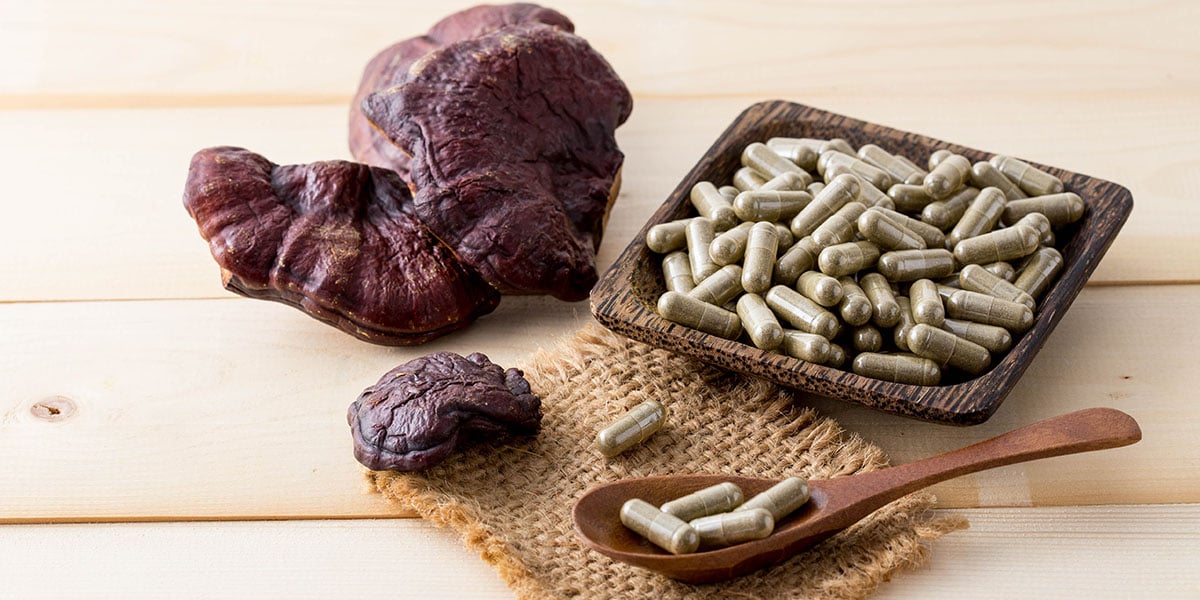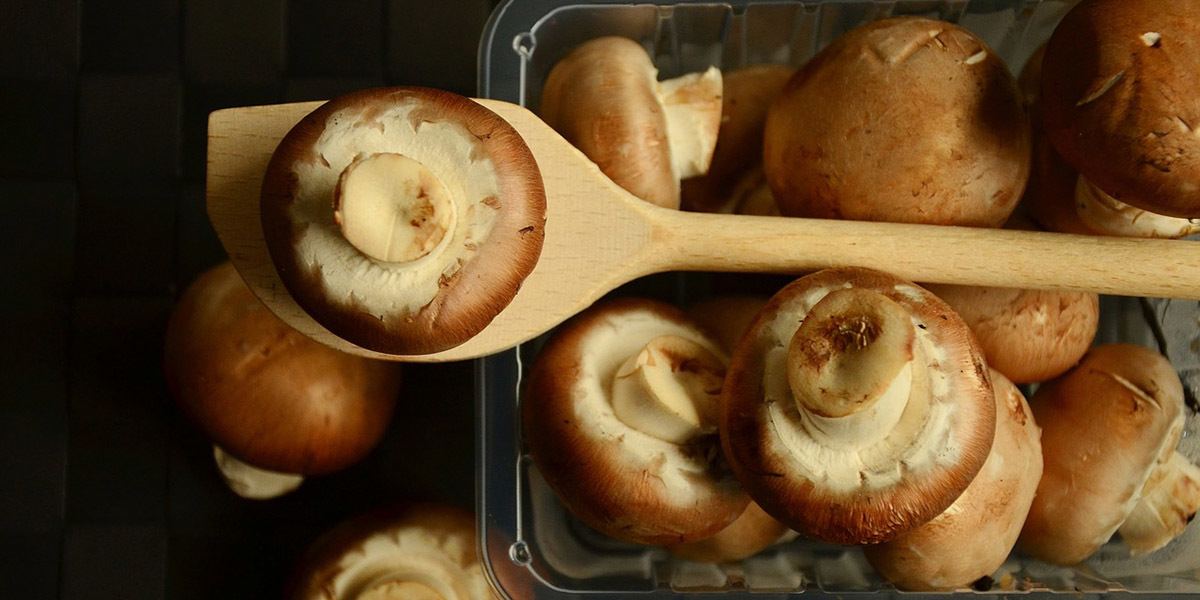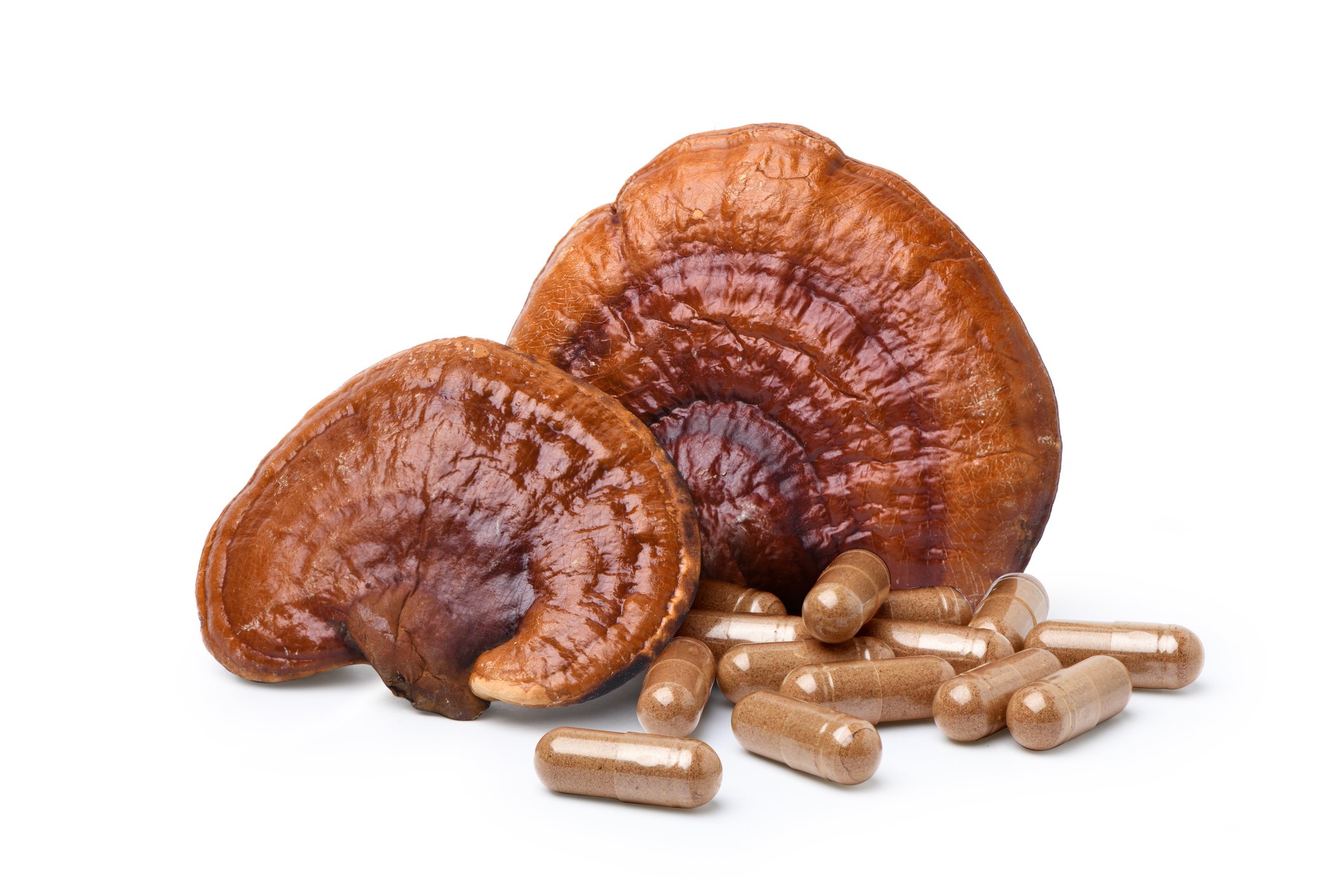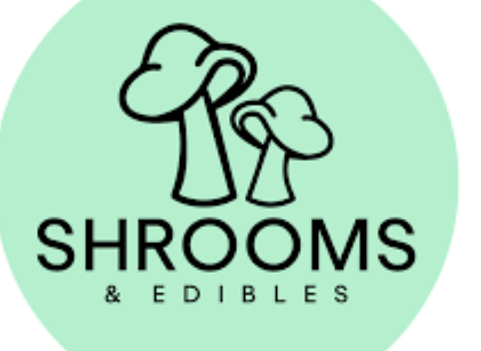
There are extracts, powders, tinctures, and pills. So what kind of medicinal mushroom product should you get?
Or should you just eat fresh or dried mushrooms instead of taking supplements?
Fresh isn’t always better! Dried and raw mushrooms are basically non-digestible for humans until they go through an extraction process to draw out all their beneficial compounds in a form our body can actually use.
The majority of mushrooms are made out of chitin, which is the same stuff that makes up the shells of crabs, lobsters, and insects.
Our bodies can’t break down chitin to get to the medicinal ingredients inside, so we need to boil or use an alcohol extraction to remove the compounds from the mushroom.
If you were to just eat reishi mushrooms, the bioavailability of their ingredients would be too low to get any real benefits. Plus it wouldn’t be a very pleasant experience.
Whole mushrooms also contain a lot of fiber, so you’d need to eat a pretty big amount to get the medicinal benefits you’re looking for. Compared to just drinking a cup of coffee or tea made from an extract.
How Much Do I Need To Take?
If you’re just taking mushrooms for general health benefits, then 2 or 3 grams of mushroom powder per day is plenty.
But it will depend on what kind of mushroom you’re consuming and how they’ve been processed. If you’re using an extract, you might need as little as half a teaspoon.
It’s best to follow the instructions on your particular product or consult with a qualified health professional who can take your needs and specific conditions into account.
When Should I Take Mushroom Supplements?

You can take mushrooms any time of the day. But some mushrooms might be better to take at certain times than others.
Cordyceps mushrooms have energy boosting effects, so it’s better to take them before a workout or in the morning. They might make you unable to sleep if you take them right before bed.
Contrast that with reishi, which has more of a sedative and sleep-promoting effect. So it’s best to take before bed.
Some people are more sensitive to these compounds than others, so you might not find any problem with taking reishi first thing in the morning. Other people prone to upset stomachs might want to take their mushroom supplements with a meal to prevent nausea.
What Are Tinctures?
Mushroom tinctures are liquid extracts. The medicinal compounds of mushrooms are extracted and usually stored in alcohol. You take a tincture by mouth, usually just a few drops at a time.
Triterpenoids (an anti-inflammatory compound found in reishi) for example isn’t water soluble, so a tincture is one way to make sure that all of the ingredients you’re looking for are thoroughly extracted and made available.Mushroom tinctures are also probably the easiest way to make your own medicinal mushroom extracts. Watch our step by step video guide to making your own medicinal mushroom tincture here:
Mushroom tinctures can be a great way to take mushrooms quickly and conveniently if you’re on the go, or if you have trouble swallowing pills and capsules.
Capsules

If you have no problems swallowing pills, then capsules can be a great way to get your mushrooms. Especially if you don’t have time in the morning to make a tea or smoothie.
Capsules contain powdered mushrooms or extracts, usually in a casing made of gelatin. It’s possible for capsules to contain other fillers besides just mushrooms, so it’s important to read the label carefully.
One big benefit of capsules is that they hide the taste of mushrooms. So particularly with bitter tasting mushrooms like reishi, it can be a good way to mask the taste if you’ve got a sensitive palate.
Powders
Powders are a very versatile way to consume mushrooms. You can add them to teas, coffees, smoothies, or even bake them into cookies or bars.
It’s also easy to measure out powders and they often come with a scoop specifically to measure single servings.
Powders also allow you to combine several different mushroom extracts in whatever quantities you desire.
They can be a bit more work than taking a capsule or tincture, but I think their versatility makes up for it. Which is why powdered extracts are my preferred way to consume medicinal mushrooms.
If you are willing to learn more about mushrooms growing, cooking and storing, read the articles below:
Conclusion
We’ve covered a lot of ground here and, as we’ve seen, there’s a lot to consider when choosing the right medicinal mushroom supplement.
To boil it down, here’s a shortlist of things to look out for:
- Choose a mushroom species that matches the health benefit you’re looking for
- Look for supplements made using mushroom fruitbodies (not mycelium on grain)
- Choose organically certified products which have been tested

